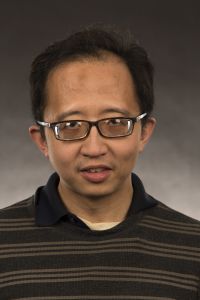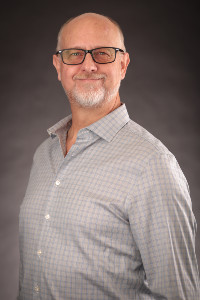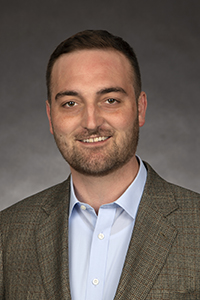
Ching-E (Nobel) Ang
Senior Lecturer in Philosophy
Office: LA 246
Education
PhD, Philosophy (2009), University of Florida
MA, Philosophy (2004), University of Florida
BA, Philosophy (2001), National University of Singapore
My philosophical interests are in normative ethics, moral psychology, as well as certain areas of bioethics such as the ethics of stem cell research. Recently, I have also developed an interest in Continental philosophy, in particular, the philosophy of Jean-Paul Sartre. I am currently trying to work out what a Sartrean ethics would look like.
Even though I enjoy thinking about philosophical problems, I enjoy thinking and talking about philosophical problems with other people even more. In particular, I very much enjoy teaching Introduction to Philosophy, and getting students to form a connection with the ideas and methods of different thinkers from different philosophical traditions.
I am also an avid chess player. I am keenly aware that there is a strong connection between chess and philosophy which draws me to both activities, but I have yet to really figure out exactly what that connection is. Perhaps this is a start: There is no room for existential angst within a chess game. All the pieces know what their roles are, and the end goal (checkmate) is always crystal clear!
Recent Publications
"Positive Freedom as Exercise of Rational Ability: A Kantian Defense of Positive Liberty", The Journal of Value Inquiry, Volume 48, Issue 1 (March 2014), pp. 1-16, DOI:10.1007/s10790-013-9399-4.
"Procrastination as Rational Weakness of Will," The Journal of Value Inquiry, Volume 46, Issue 4 (2012), pp. 403-416, DOI: 10.1007/s10790-013-9357-1.
Courses Taught
4425/5525: Existentialism
4400/5500: Philosophy of Art
2230: Medical Ethics
1103: Introduction to Ethics
1101: Introduction to Philosophy

Ralph Baergen
Professor of Philosophy; Chair, Human Subjects Committee
Office: LA 247
Education
PhD, Philosophy (1990), Syracuse University
MPH (2008), Idaho State University
MA, Philosophy (1989), Syracuse University
BA, Religion (1983), University of Manitoba
Although my philosophical roots are in epistemology, over the last decade or so my interests have moved into medical ethics. Much of my work involves collaborating with people in other disciplines. For instance:
(2021) C. Owens, R. Baergen, “Pharmacy Practice in High-Volume Settings: Barriers and Ethical Responsibilities,” Pharmacy 9 (2), 74. https://doi.org/10.3390/pharmacy9020074.
(2013) C. Owens, R. Baergen, D. Puckett, "Online Sources of Herbal Product Information" American Journal of Medicine.
(2013) S. Lawyer, R. Baergen, B. Kuruvilla, "Ethical Conduct of Laboratory Experimental Research on Fear and Anxiety: Review and Recommendat ions." Ethical Human Psychology and Psychiatry vol. 15, no. 3.
(2013) R Baergen, W Woodhouse "Surrogates and Extra-Familial Interests," centerpiece of a special section in The Journal of Clinical Ethics.
Courses Taught
6600: Ethics in Healthcare
4460/5560: Theories of Knowledge
2230: Medical Ethics
1103: Introduction to Ethics
1101: Introduction to Philosophy

Melissa Norton
Senior Lecturer in Philosophy
Office: LA 245
Education
MA, Philosophy (1985), Claremont Graduate School
BA, Religion and Philosophy (1981), Whitworth College
Norton received a BA in Religion and Philosophy from Whitworth College in 1981 and an MA in Philosophy from Claremont Graduate School in 1985. Her interest is in the history of philosophy. She has worked on Plato in the ancient period, Hume and Kant in the early modern period, and Wittgenstein in 20th century analytic philosophy.
Norton teaches Introduction to Philosophy (both in class and on line), Introduction to Ethics, Logic, and Philosophy of Religion.

Michael Roche
Associate Professor of Philosophy
Office: LA 252
Education
Ph.D., Philosophy (2013), University of Wisconsin, Madison
M.A., Philosophy (2008), University of Wisconsin, Madison
B.A., Philosophy (2004), University of Utah
B.S., Psychology (2004), University of Utah
I joined the philosophy program at ISU in 2019. Having grown up nearby in Salt Lake City, I was thrilled to land here! Before arriving at ISU, I attended graduate school at the University of Wisconsin and taught philosophy in both Illinois and Mississippi. ISU students are my favorite, however! I regularly teach Introduction to Philosophy, Introduction to Logic, and a variety of upper-division courses. I specialize in philosophy of mind, and my research focuses on introspection (or self-knowledge), an area at the intersection of philosophy of mind and epistemology.
Recent Publications
“Truth-Ratios, Evidential Fit, and Deferring to Informants with Low Error Probabilities” (w/ William Roche)
Acta Analytica, forthcoming. (link)
“Byrne on Transparent Introspection” (substantial book review)
Philosophical Psychology, forthcoming. (link)
“Introspection, Transparency, and Desire”
Journal of Consciousness Studies 30, 3 (2023) 132-154. (link)
“Authority Without Privilege: How To Be a Dretskean Conciliatory Skeptic On Self-Knowledge” (w/ William Roche)
Synthese 198 (2021) 1071–1087. (link)
A complete list of my publications is available here.
Awards
(2024) ISU Excellence in General Education Teaching, Objective 7
(2023) ISU Outstanding Teacher
Courses Taught
Introduction to Philosophy (PHIL 1101)
Introduction to Logic (PHIL 2201)
Philosophy of Language (PHIL 4410)
Philosophy of Mind (PHIL 4420)
Philosophy of Science (PHIL 4430)
Metaphysics (PHIL 4435)
Theory of Knowledge (PHIL 4460)
Symbolic Logic and Foundations of Mathematics (PHIL 4470)

Evan Rodriguez
Associate Professor of Philosophy
Office: LA 250
Education
PhD, Philosophy and Classics (2016), Yale University
BA, Philosophy and Classical Culture & Society (2008), Haverford College
I received my PhD from Yale’s Philosophy and Classics program in 2016, after first falling in love with both subjects in the liberal arts context at Haverford College. My work uses philosophical and philological tools to help us understand ancient texts, to put them in conversation with modern problems, and to put us in conversation with each other.
Selected Awards
(2021). CHS academic year fellowship and 8-week residency. Harvard University’s Center for Hellenic Studies.
(2021). IHC Research Fellowship, Idaho Humanities Council.
(2020). NEH Summer Stipend. National Endowment for the Humanities.
(2019). Conrado Eggers Lan Prize for Best Dissertation in Platonic Studies (for dissertations awarded between January 2014 and July 2018). International Plato Society.
Selected Publications
(2023). A Homeric Lesson in Plato's Sophist. Classical Quarterly 73(2): 593–601.
(2023). Problems of Being. The Cambridge Companion to the Sophists: 200-224.
(2022). A Long Lost Relative in the Parmenides? Plato’s Family of Hypothetical Methods. Apeiron 55 (1): 141-166.
(2020). Structure and Aim in Socratic and Sophistic Method. History of Philosophy and Logical Analysis 23(1): 143–166.
(2020). ‘Pushing Through’ in Plato’s Sophist: A New Reading of the Parity Assumption. Archiv für Geschichte der Philosophie 102(2): 159–188.
(2020). Aristotle's Platonic Response to the Problem of First Principles. Journal of the History of Philosophy 58(3): 449–469.
(2019). Untying the Gorgianic ‘Not’: Argumentative Structure in On Not-Being. Classical Quarterly 69(1):87-106.
(2019). More than a Reductio: Plato's Method in the Parmenides and Lysis. Études Platoniciennes 15.
Current Courses
4460/5560: Theory of Knowledge
3305: History of Philosophy: Greek Reason and Christian Faith
2299: Life and Death
2220: Philosophical Issues in Religion
2210: Introduction to Asian Philosophies
1101: Introduction to Philosophy

James Skidmore
Associate Professor of Philosophy; Department Vice Chair; Director of Philosophy
Office: LA 253
Education
PhD, Philosophy (2000), University of Minnesota
BA, Philosophy (1993), Washington State University
BA, English (1992), Washington State University
My main philosophical interests are in ethical theory, and in particular Kantian and utilitarian moral theory. In my dissertation I focused on Kantian theories and their inability to accommodate moral obligations toward non-human animals. I argued, and continue to argue, that their failure in this regard constitutes a serious theoretical problem. My interests are now gradually turning toward the project of developing and defending a plausible consequentialist theory (an approach that traditionally defines morally right action as action that maximizes overall, long-run value; utilitarianism is an example of such an approach). Since a crucial first step is to define consequentialism in a plausible way, my current work examines how, and how not, to do this. From here my goal is to contribute to the defense of such a theory. Since I believe there is little hope of doing so through conceptual analysis or argument a priori, my concern is to examine the extent to which a consequentialist theory can accommodate various considered judgments that are widely shared at the level of practice—in particular, features of our moral practice that appear to be thoroughly non-consequentialist in nature.
While these topics are the focus of my research, my teaching continues to be in many ways the most rewarding part of my job. I regularly teach lower-division courses in Introduction to Ethics, Introduction to Philosophy, and Bioethics. I also teach upper-division courses in Ethical Theory, Political Philosophy, and Philosophy of Law. When schedules permit, I enjoy teaching courses on special topics—recent examples include Philosophy of War and Terrorism and an Honors Seminar: Lying and Deception.
Selected Publications
"Does ‘Ought’ Imply ‘Might’? How (not) to Resolve the Conflict between Act and Motive Utilitarianism." Philosophia 46 (2018), 207-221.
“Skepticism about Practical Reason: Transcendental Arguments and Their Limits.” Philosophical Studies 109 (2002), 121-141.
“Duties to Animals: The Failure of Kant’s Moral Theory.” Journal of Value Inquiry 35 (2001), 541-559.
--Reprinted in Applied Ethics, Dimock and Tucker (eds.),Thomson Nelson (2004), 160-176.
--Reprinted in Environmental Ethics, Botzler and Armstrong (eds.), McGraw-Hill (2003).
Awards/Honors
Master Teacher, ISU, 2011
Courses Taught
4450/5550: Ethical Theory
3353: Philosophy of Law
2230: Medical Ethics
1103: Introduction to Ethics
1101: Introduction to Philosophy
POLS 3313: Political Philosophy
Emeritus Faculty

William L. King
Professor of Philosophy (retired 1994)
PhD in Philosophy (1968), Stanford University

Carl Levenson
Professor of Philosophy (retired 2016)
PhD in Social Thought (1980), University of Chicago

Russell Wahl
Professor of Philosophy (retired 2021)
PhD, Philosophy (1982), Indiana University

Jonathan A.G. Westphal
Professor of Philosophy (retired 2011)
PhD (1981), University of London

